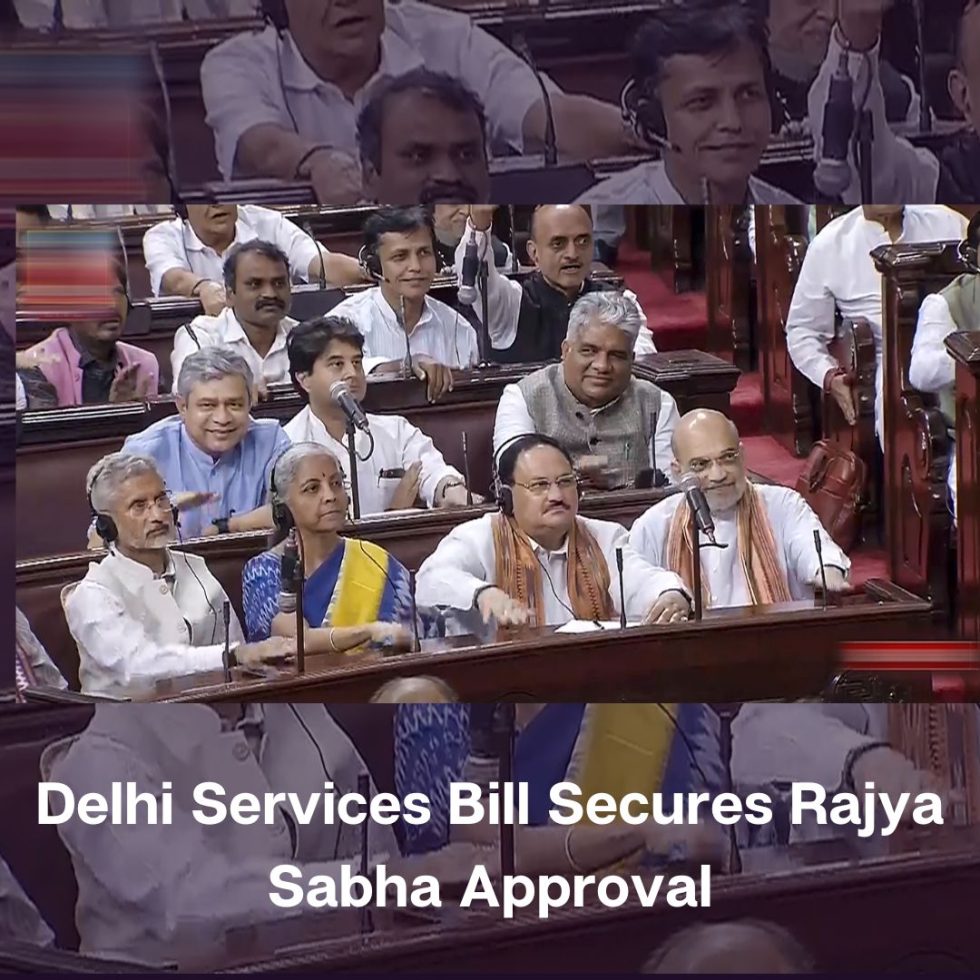
The Rajya Sabha has approved the Government of National Capital Territory of Delhi (Amendment) Bill, 2023, with a margin of 131 votes to 102, signaling both profound implications for Delhi’s administration and a notable landmark in national political dynamics.
During the extensive deliberations and voting process, the government and the Opposition engaged in a heated confrontation, while Home Minister Amit Shah emphasized that the Bill does not infringe upon the Supreme Court’s judgment supporting the Delhi government. He further asserted that its purpose is to establish “effective, corruption-free governance” in the national capital.
In opposition to the bill, Raghav Chadha of the Aam Aadmi Party appealed to the BJP, urging them to adhere to the stance of their own leaders, Atal Bihari Vajpayee and LK Advani, who advocated for Delhi to have complete statehood. Chadha alleged that the BJP’s response stems from their string of electoral defeats in Delhi.
A notable highlight during the discussion on the Government of National Capital Territory of Delhi (Amendment) Bill, 2023 in the Rajya Sabha was the appearance of former Prime Minister Dr. Manmohan Singh, who arrived in a wheelchair to express his opposition to the proposed amendment by casting his vote against it.
Recap of Progress to Date!
On May 11th, the Supreme Court of India ruled in favor of the Delhi government, granting it extensive control over various services in the capital city, while excluding public order, land, and police affairs. Responding to this, on May 19th, the Central government introduced an ordinance allowing the Delhi government to propose recommendations to the Delhi Lieutenant Governor on topics such as personnel transfers, vigilance, and related matters.
Given its unique status as the national capital, a legislative framework must be devised to maintain a delicate balance between local and national democratic interests, ensuring the representation of the people’s aspirations through shared responsibilities of the Government of India and the Government of National Capital Territory of Delhi (GNCTD), as stated in the government order.
As part of these changes, a permanent authority led by the Delhi Chief Minister will be established to put forth recommendations to the Lieutenant Governor concerning issues like transfers, postings, vigilance, and other pertinent matters, as outlined in the same document.
On August 3, the Lok Sabha approved a bill that will convert an ordinance into law. This legislation grants authority to bureaucrats appointed by the Centre to supersede the elected chief minister and senior officers in the Delhi government, despite opposition parties staging a walkout. Following the bill’s passage, a debate lasting almost four hours took place in the Lok Sabha.
What does the new bill entail?
The Delhi Services Bill is primarily focused on granting the Central government control over the investigations and suspensions of officials in the national capital. This legislation gives substantial discretion to the Lieutenant Governor in various areas, including recommendations from the National Capital Civil Services Authority, as well as the convening, adjournment, and dissolution of the Delhi Legislative Assembly.
Key members of the National Capital Civil Services Authority consist of the Chief Secretary of Delhi, the Principal Home Secretary of Delhi, and the Delhi Chief Minister.
What are the reasons behind the opposition’s stance?
In response to the bill’s approval in the Lok Sabha, Arvind Kejriwal, the Chief Minister of Delhi, voiced his reaction. He highlighted that the BJP had previously pledged to grant Delhi “complete statehood.”
Expressing his discontentment with the bill’s provisions, which curtail the state’s authority regarding personnel transfers, Kejriwal expressed his disappointment, asserting that the BJP’s actions today amounted to betraying the trust of Delhi’s citizens.
P Chidambaram of the Congress party stated that the BJP lacks both constitutional and ethical legitimacy to push forward this bill. He questioned the basis for their authority, highlighting that they secured a victory in Delhi’s elections a quarter-century ago. Chidambaram further commented on the bill’s intent, noting it as a perceived blueprint for Delhi, and drew a parallel to a similar approach taken in Jammu and Kashmir, which is currently under legal review. This reference pertains to the abrogation of Article 370 of the Constitution, which granted special status to Jammu and Kashmir.
In his speech during the Lok Sabha session, Tharoor also expressed his viewpoint that the proposed bill signifies a troubling milestone in the Indian republic’s history. He argued that it seeks to legitimize an ordinance that, in several aspects, undermines the democratic legacy and the principle of federalism on which the nation is built.
Home Minister Affirms: Supreme Court Grants Parliament Authority on Delhi’s Services Legislation
During the introduction of the Bill, Home Minister Amit Shah refuted any claims of it contradicting the Supreme Court’s ruling, asserting that the Court has acknowledged the Parliament’s authority to enact legislation pertaining to services in Delhi. He highlighted that the Constitution grants the power to the House to pass any law concerning the state of Delhi, dismissing objections as politically motivated.









